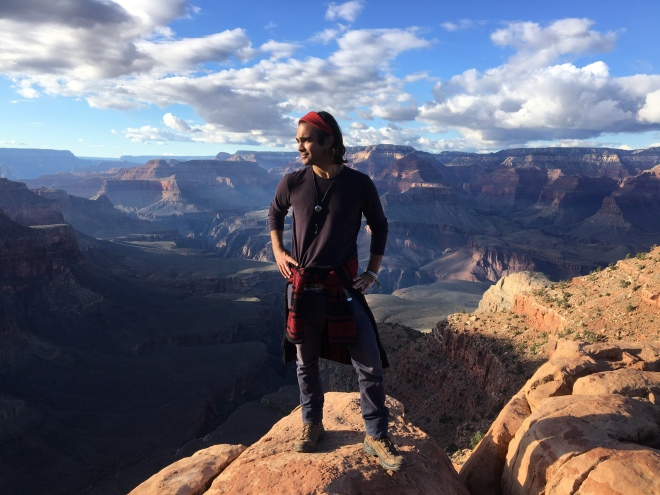Save Our Home, Save Ourselves
I recently applied to a job that asked me to select the best pic of myself in the outdoors. It sounds like it could be an exciting one, a job where I’d be spending time in some of my favorite places, or one place depending on how you look at it. That is, the National Parks or in the broader sense, in nature.
To that point, I’ve come to see them less as individual places and it more as one larger whole. Our planet. I like that approach more.
It’s hard to say which picture could ever be the best, but this is the one I felt like posting–taken almost exactly four years ago.

Much has happened since then both in my life and throughout the world, and I’ve been fortunate to have gone on many adventures in the time in between. Hopefully I’m a strong sum of those experiences, as each was its own unique reminder of my connection to both land and people.
I’m not unique in that respect, since I know many who have turned to the outdoors and felt a similar way. Restored, replenished, readjusted to the point that their day-to-day ambitions either suddenly feel silly, or are just given renewed purpose in light of the bigger realization that they are a part of something bigger than themselves and their possessions.
While I can only hope it’s enough to help us recognize the importance of preserving these places—since all of us deserve to experience the land in equal measure—above all, I hope we each begin doing our part in preserving the integrity of our environment, for the health of our planet, our one true home, for our physical health, and ultimately for our sanity.
I look back on recent years and I think about people marching against gun violence, or against corporate greed on Wall Street. I think about people marching for Black lives and for our government’s full recognition of their humanity.
And I think about two weeks ago, when everyday I stepped out and saw a smoke-filled sky blotting out the sun due to devastating regional wildfires. In the back of my mind, the fire’s reach had far exceeded the limits of the west coast where I make my home. Indeed, the larger symbolism was hard to miss.
The issues of violence, racial justice, environmental justice and economic inequality are, I believe, inter-related. The dangers of climate change for example pose the most immediate threat to Black and Brown communities, a disproportionate number of which fall below the poverty line in the United States and throughout the world–a reality most clearly demonstrated in food and water shortages not just in third-world countries, but here at home.
Tackling the threat of climate change will not automatically close the gap on income inequality or accomplish comprehensive racial justice. Still you cannot adequately address problems in your house when your house is, quite literally, on fire; and truly, the fight for a healthy planet has the power to bring people of different backgrounds and beliefs together, likely more so than any movement we’ve ever witnessed. More to the point, it’s the understanding of our interconnectedness that will ultimately save us in virtually every domestic and global conflict we experience; and nowhere is that realization more critical than in the necessary global effort to mitigate climate change by cultivating a cleaner and more sustainable world for all people.
The act of getting outdoors, spending time in our public lands and in the broader wilderness of the world has the unique power to reinforce the fundamental reality of our interdependence and dependence on the land. It’s just one of many reasons why it’s so important they stay preserved and protected.
I often reflect on whether it will just be an ongoing battle for every generation between people committed to preserving our wilderness for the public benefit, and the people who seek to exploit the land for their own profit.
I hope that it won’t. Maybe the dual threats of climate change and a global pandemic will convince people of their stake in each other’s health and the health of our planet, and the influence will carry over through generations to come.
I only know that the need for such a realization has never been so urgent.
As for our wilderness, and it’s unmatched beauty and healing power, for now there’s little more I can say, other than to simply go, as soon as you can, and experience it for yourself.
Let’s please take care of our home. I am committed to doing my part and I hope you will join me. The Sierra Club is one of our nation’s most enduring and influential forces for environmental action and awareness. I’ve been a member for a couple years now and I urge you to consider joining and lending your support as well.
Let’s get to work.
*Take Action –> www.sierraclub.org
Friends of the Earth Action https://foeaction.org/
Natural Resources Defense Council https://www.nrdc.org/
National Parks Foundation https://www.nationalparks.org/
